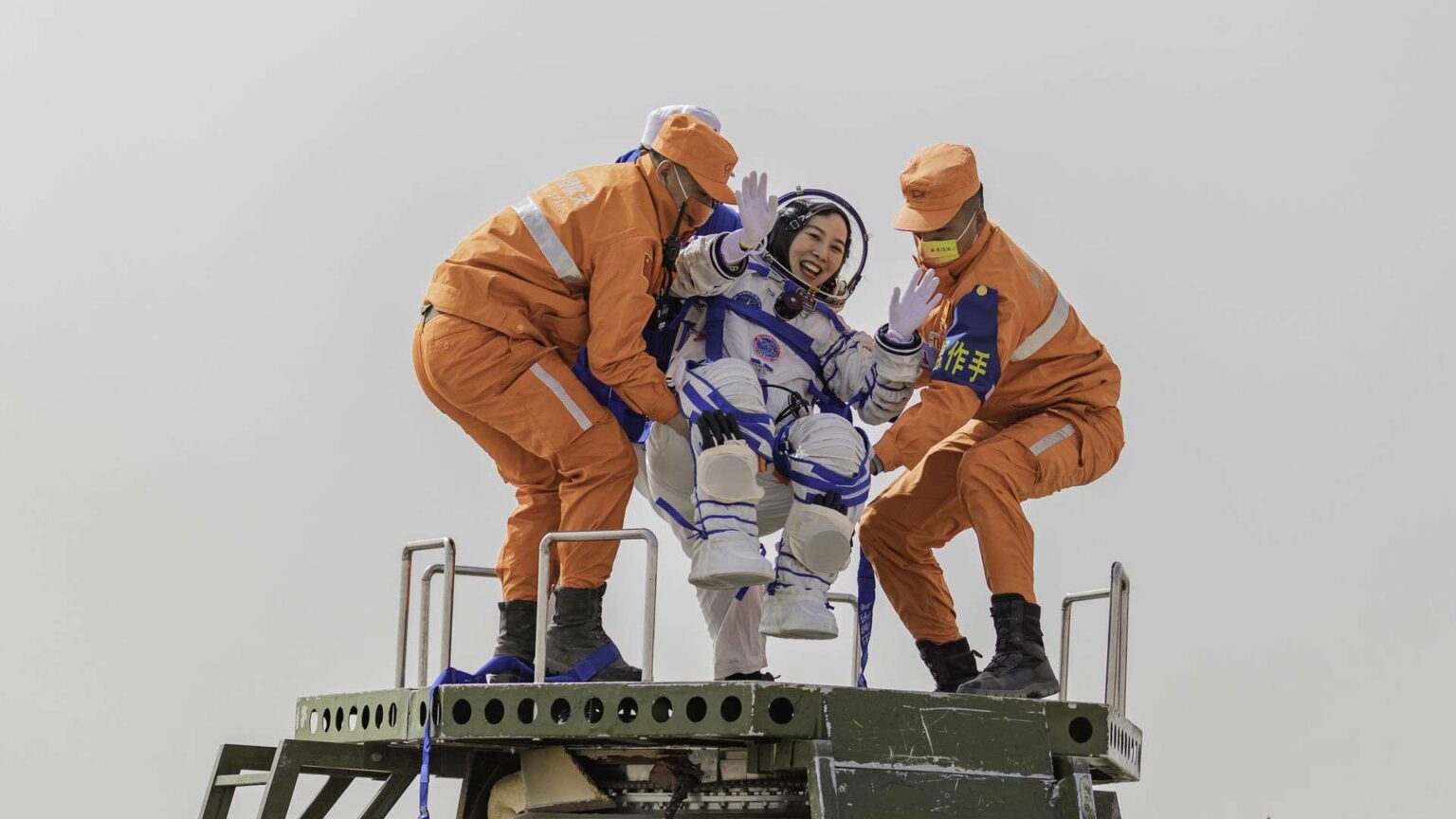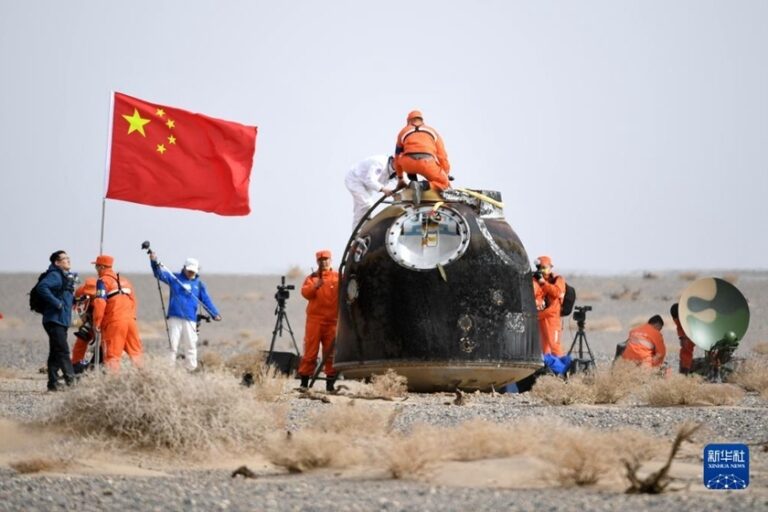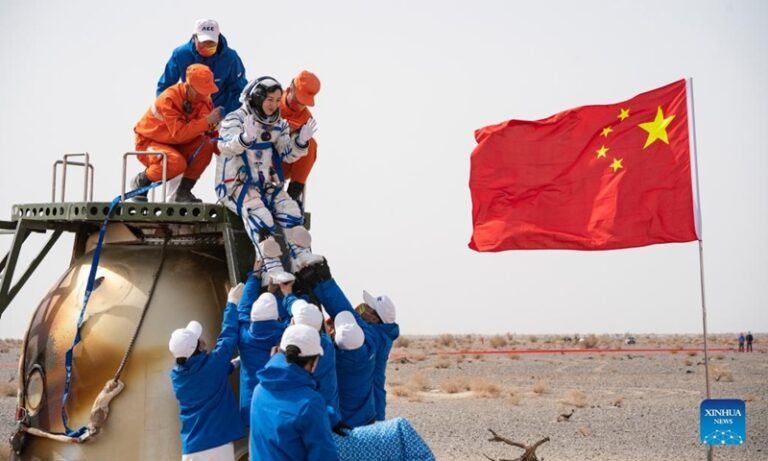Three Chinese astronauts, known as Taikonauts, returned safely to Earth. The return took place after six months on board the Chinese Tiangong Space Station under construction. This is China’s second mission to the space station and the longest at the moment. The Shenzhou-13 spacecraft landed in the desert of Inner Mongolia. The crew launched from the Jiuquan Cosmodrome in the Gobi Desert in October 2021 and spent a total of 183 days on the space station.

Woman-Taikonaut in Outer Space
This mission is not only the longest Chinese space mission. On board was Wang Yaping, who has already gone down in history as the first Chinese woman to go into outer space. Yapin also went down in history as the first Chinese woman to visit the Tianhe Space Station – the module of the future Tiangong station. She was accompanied by crew member Ye Guangfu and Commander Zhai Zhigang. The trio performed a total of two spacewalks, conducted various tests around the station, and also conducted two live lectures for students on Earth.


Plans for 2022
Shenzhou-13 is part of 11 missions for which China has planned to complete the construction of the Tiangong Space Station. China first launched the Tianhe module in April 2021, and then sent three taikonauts to launch the station. The next Shenzhou-14 crew is scheduled to go to the space station in June. China is planning to complete the construction of the station by the end of 2022. By this time, the country will launch two additional modules.
Although six months aboard the space station seems like a long time, but it is a standard time for missions to the International Space Station, from which China is excluded. NASA astronaut Mark Van de Heij, who recently returned to Earth from captivity on the ISS, currently holds the record for the longest continuous stay in space — 355 days.
According to Space

